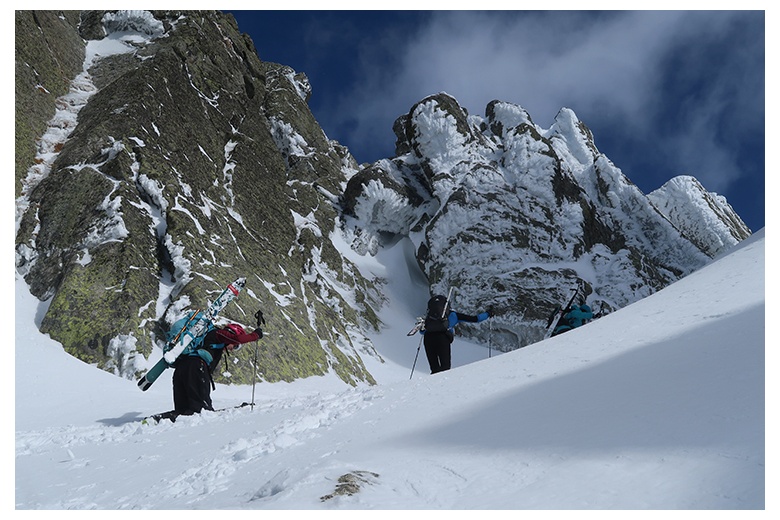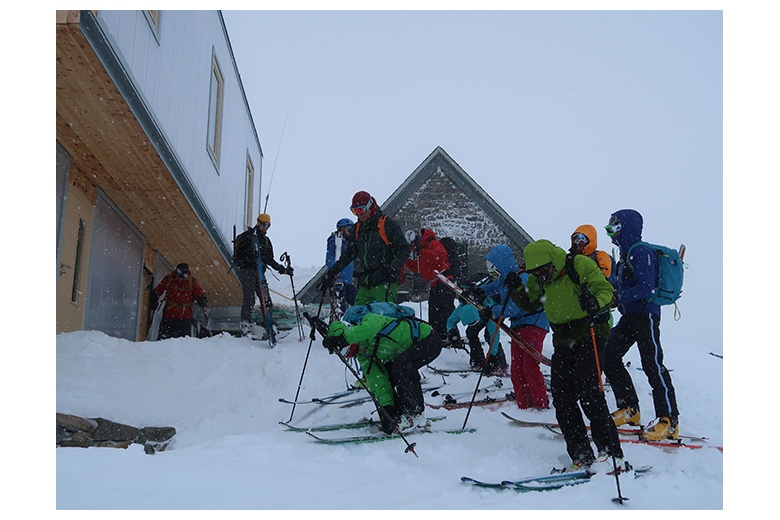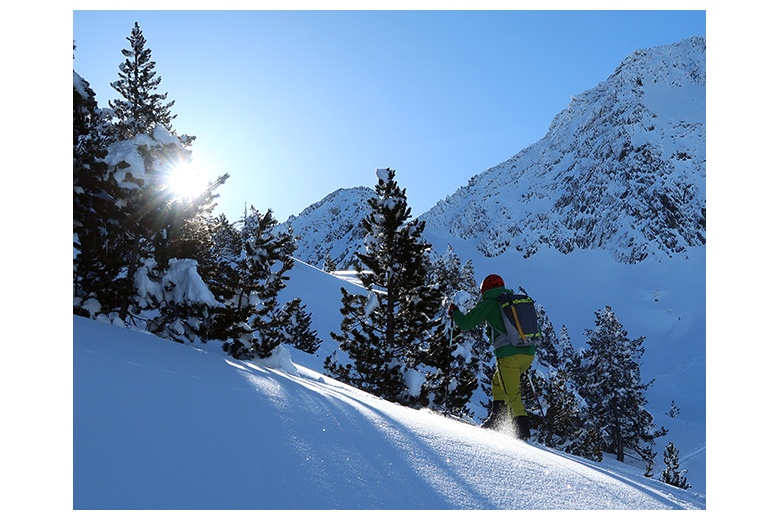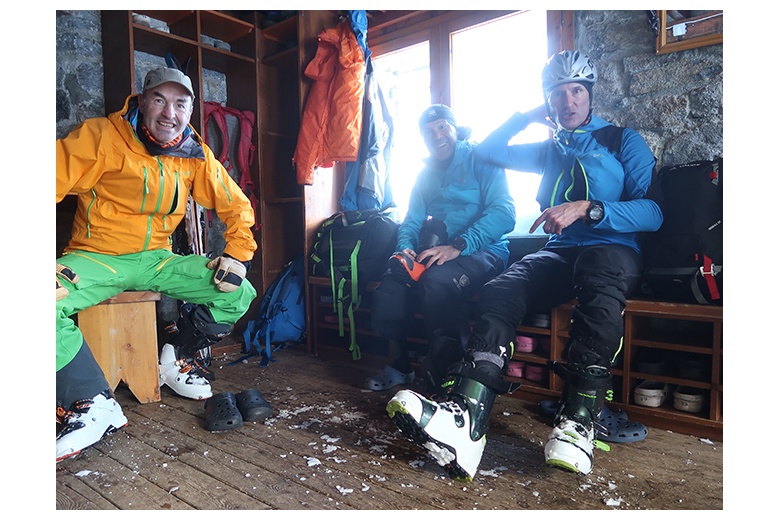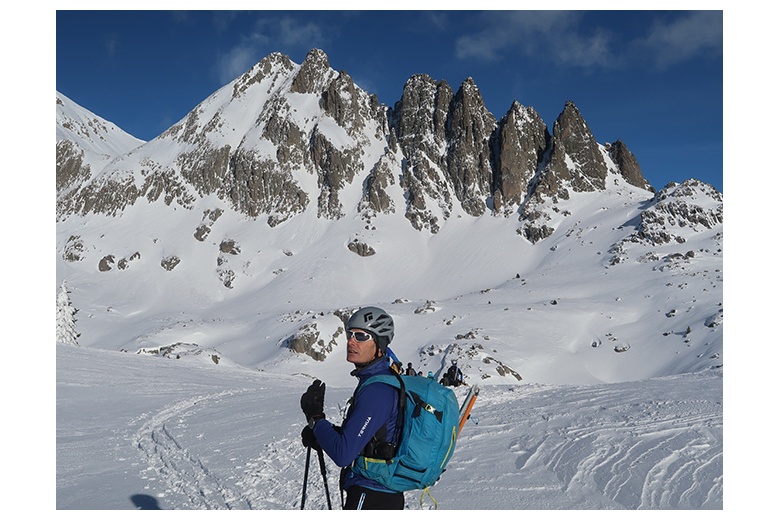Day 1 :
Meeting in Salardú (TUC Mountain Guides office) around 19h00 – Program briefing and equipment check-up
Day 2 :
Transfer to the starting point: Espitau de Vielha (1622m) - Còth de Conangles (2667m) - Lac Tort de Rius (2351m) - Colhada de Lac de Mar (2502m) - Lac de Mar (2251m) - Bretxa de Pauss (2682m) - Estany de Tumeneia de Dalt (2324m) - Refugi Joan Ventosa i Calvell (2214m)
Duration: 8-9h
Elevation gain/loss: + 1627m / - 1053m
Day 3 :
Refugi Joan Ventosa i Calvell (2214m) – Comalespasa couloir (2700m) – North face descent back to the hut (2214m)
Duration: 4h
Elevation gain/loss: + 616m / - 616m
Day 4 :
Refugi Joan Ventosa i Calvell (2214m) - Tuc de Lluça (2777m) - Lac de Colomers (2200m) - Còth deth Tuc Gran de Sendrosa (2451m) - Refugi de Saboredo (2298m)
Duration: 7h
Elevation gain/loss: + 814m / - 730m
Day 5 :
Refugi de Saboredo (2298m) - Còth der Lac Glaçat (2586m) - Pic d'Amitges (2848m) - Refugi de Les Ares (1769m)
Duration: 7h
Elevation gain/loss: + 550m / - 1079m
Included:
- 4 day UIAGM/AEGM mountain guide services
- Advices prior the start
- Reservations management assistance
- 3 half-board nights stay at Refugi Joan Ventosa and Refugi Saboredo for both the participant/s and guide/s.
Not included:
- Snacks and drinks during the day of both participant/s and guide/s
- Client/s and guide/s extra expenses due to unexpected program variations
- Transfer before and after the program
General Information:
- Each group member taking part in the ski route is required to possess an at date license issued by the Mountaineering Federation valid in the Pyrenees.
- Mountain skiing is an extraordinary pass time but it involves risks. Each member of this journey takes full responsibility of what could happen.
- The mountain guide reserves the right to modify the program depending on snow conditions, weather, group factor or any other cause that in his opinion may be decisive.
- Touring skis (adjusted bindings)
- Touring ski boots
- Telescopic ski poles
- Skins
- Ski crampons
- Snow shovel
- Probe 240cm
- DVA (charged batteries)
- Ski carry backpack
- Helmet
- Sunglasses
- Goggles
- Thin ski gloves
- Thick ski gloves
- Buff
- Hat
- Sun cream 50+
- Lip balm 50+
- Touring pants/Thin Gore-Tex pants
- Gore-Tex jacket
- Primaloft
- Fleece
- Thermal t-shirt
- Medium thickness socks
- Snacks (sandwich, cereal bars, nuts,...)
- 1.5l bottle of water
- Mobile Phone
- ID/Passport
- Cash
- Mountaneering Federation License valid for the Pyrenees
For the outdoor activity that you plan to be successful it is very important that it accommodates to your level, both physical and technical. Here we present some guidelines so that you can get an idea of what your level is according to the programs we propose. However, we recommend reaching to us so we can help you personally and adapt the program to your conditions.
Ski touring & Freeride
TECHNICAL level
- 1 = Beginner. Never ski toured before. Is a regular ski resort skier that occasionally goes off-piste. Black runs are not a problem for its level.
- 2 = Starter. Has experienced ski touring, climbing with skins (skinning). Is familiar with all the ski touring gear. Capable of uphill kick turning on not very steep terrain. Knows how to place and use ski crampons. Ski climbs safely through all kinds of snows on a trace. Skies down efficiently on ungroomed terrain, even on steep but wide slopes.
- 3 = Intermediate. Regular touring skier, . Trained on the basic techniques of skinning and uphill kick turn. Can change directions on slopes of 35º. Able to place ski crampons and crampons in an autonomous way. Skies down effectively on all kinds of ungroomed terrain and steepness.
- 4 = Advanced. Masters the technique of skinning on slopes up to 40º - 45º. Moves safely with skins on steep and icy slopes. Basic knowledge of mountaineering, use of crampons and ice axe as well as rope work. Skies down safely on every snow condition and steepness.
- 5 = Very advanced. Extensive experience in touring and mountaineering ski. Moves effectively changing direction on all kind of terrain, even on exposed places. Very good skier on every snow condition and steep terrain, as well as in exposed passages. Goes frequently on one-day or multi-day ski tours, spending the nights in huts. Familiar using the ice axe and crampons on all types of mountain domain. Knowledge and training on rope work, protection and self-arrest.
FITNESS level
- 1 = Able to ascend 600 meters of elevation gain skinning for 3 hours carrying a light backpack of about 5 kg.
- 2 = Able to ski tour for 4 or 5 hours overcoming 800 meters of elevation gain with a backpack of about 5 kg at a 300 meters an hour pace.
- 3 = Able to accomplish 5 to 7 hours routes and 1000 meters elevation gain with a backpack of about 7 kg at a 300 meters an hour pace.
- 4 = Able to succeed on alpine routes of up to 8 hours and 1200 meters of elevation gain with a backpack of about 8 kg at a 400 meters an hour pace.
- 5 = Able to carry out alpine routes of more than 8 hours long and between 1500 and 2000 meters elevation gain with a 10 kg backpack at a 400 meters an hour pace.
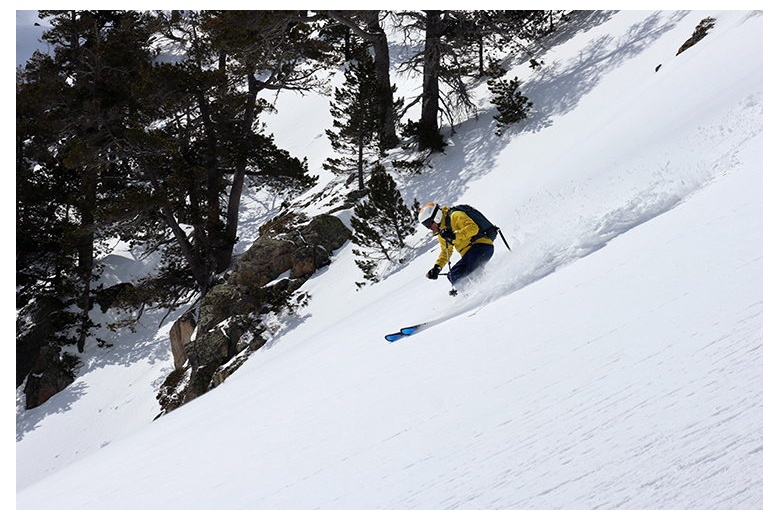
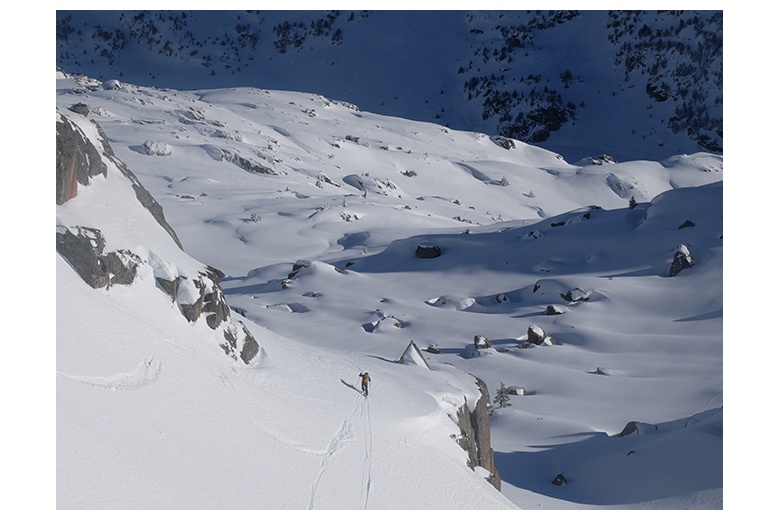
.jpg)
